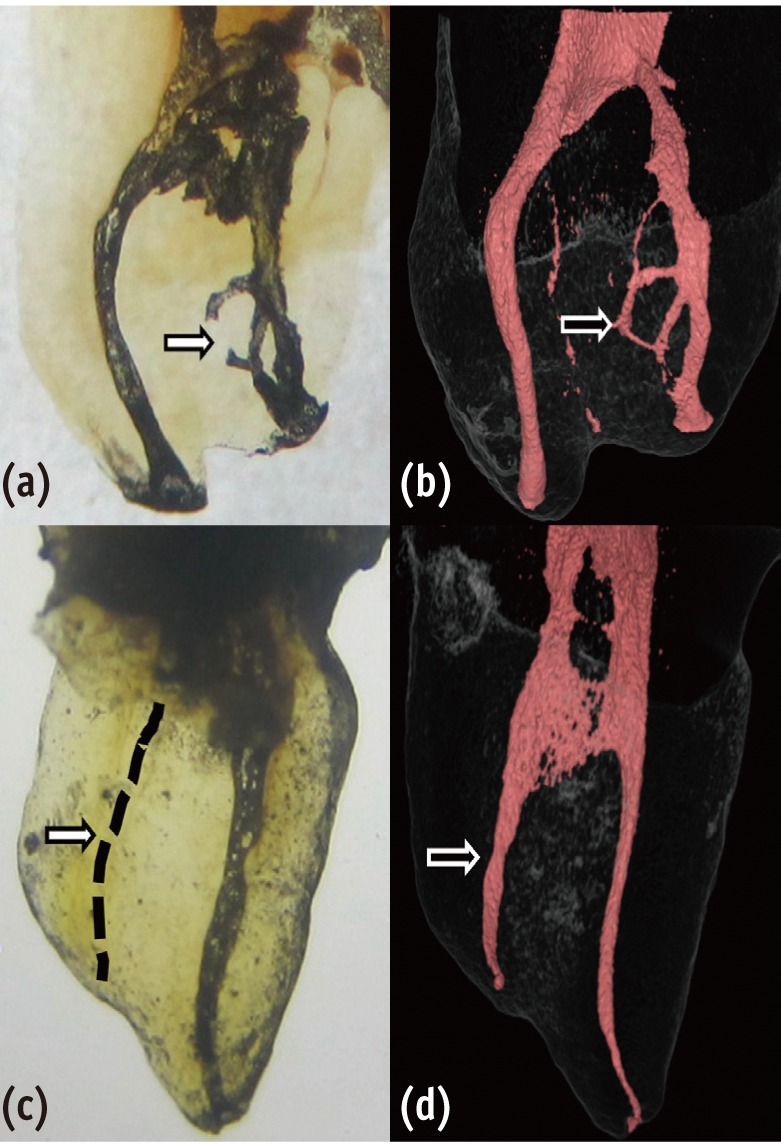-
Necrosis of intact premolar caused by an adjacent apical infection: a case report
-
Saeed Asgary, Laleh Alim Marvasti
-
Restor Dent Endod 2013;38(2):90-92. Published online May 28, 2013
-
DOI: https://doi.org/10.5395/rde.2013.38.2.90
-
-
 Abstract Abstract
 PDF PDF PubReader PubReader ePub ePub
Although periapical inflammatory lesions are usually resulted by infection in the root canal system, this rare case showed that a periapical lesion related to an infected tooth may cause pulpal necrosis in adjacent intact tooth, with no history or clinical signs of caries, disease, trauma or developmental anomaly. This case also suggests that the periapical lesion can be treated conservatively, without surgical intervention. Furthermore, this case highlights the importance of prompt treatment of apical periodontitis before the lesion becomes extensive as well as follows up of large lesions. -
Citations
Citations to this article as recorded by  - Atypically grown large periradicular cyst affecting adjacent teeth and leading to confounding diagnosis of non‐endodontic pathology
Domenico Ricucci, Massimiliano Amantea, Christian Girone, José F. Siqueira
Australian Endodontic Journal.2020; 46(2): 272. CrossRef
-
202
View
-
0
Download
-
1
Crossref
|




